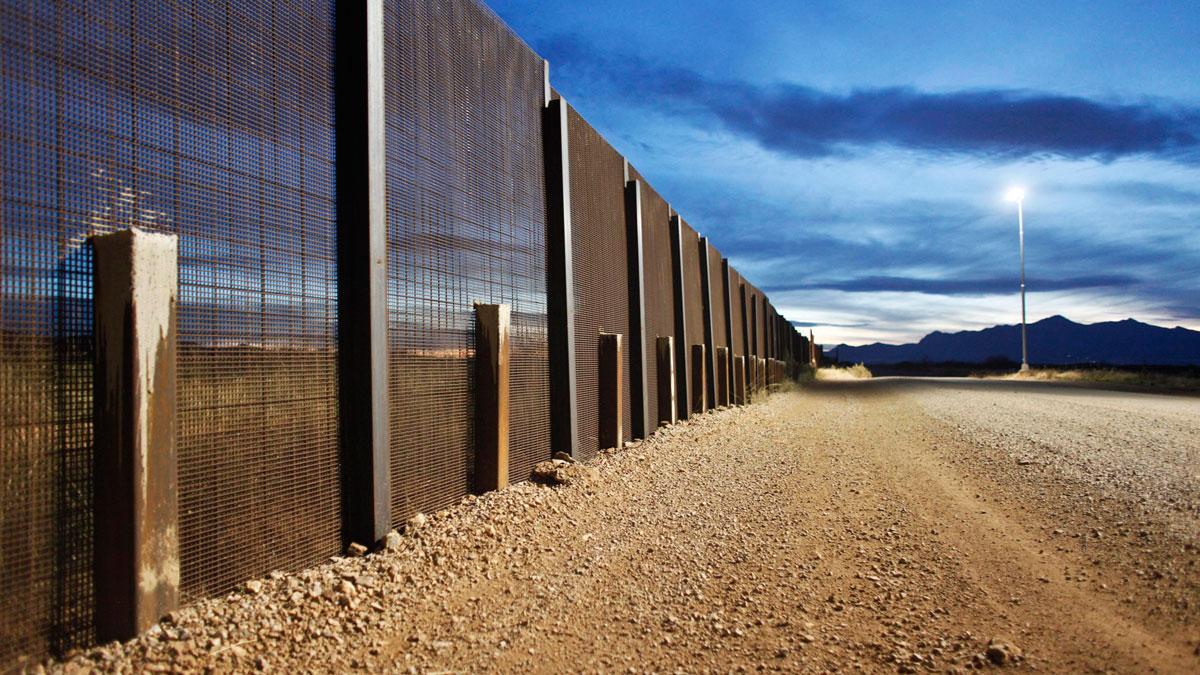The Arizona-Mexico border fence is seen near Naco, Arizona.
This past Monday my neighbor told me to make sure to lock my windows.
“The church down the street is putting in security cameras,” he said. “There must have been some break-ins.”
My neighbor must not have known it’s not a church, but a mosque. It serves the east African community in our neighborhood. It was my day off, and I walked down the block to see. Guys in blue overalls were taking measurements to put up a chain link fence around the building.
Another man tugged on the security bars protecting the windows, I assume, to test whether the bars would hold.
On Tuesday, I did a little impromptu shopping at the Fred Meyer supermarket on the corner of SE Foster and 82nd in Portland, Oregon. I chose that Fred Meyer because I remembered as I drove by that someone had set off a small explosive device a week ago there, in Aisle 13. There wasn’t much damage, and nobody was injured.
On the way inside, I got to talking with the manager, and asked her if Aisle 13 got picked because it’s unlucky. She rolled her eyes at the bad joke, and told me Aisle 13 is the “ethnic aisle.”
“Are you telling me the bomb went off on 13 because it’s the ethnic aisle?” I asked.
She shrugged slowly — dramatically really — and looked at me in that way you do when you want to tell someone yes but don’t want to say it.
On Wednesday, I got a text message from a friend who’s a pastor. He told me he heard the United Church of Christ in Vancouver was lit on fire. One of his concerns was whether the fire might be a hate crime. He was hoping someone (mainly, myself) would look into it and report on it.
His concern is understandable — the church embraces the plight of minorities, of race, sexuality, or gender. I told him it’s best to let federal investigators do their jobs and not draw attention to it.
“You don’t want a bunch of copycats running around, trying to get on TV or the front page,” I said.
On Thursday I got another message from him, this time through Facebook.
“Another church was hit last night,” he wrote. “It looks like they threw a Molotov cocktail through the window.”
On Friday, I told an editor who doubles as a friend about all these little moments of unease I ran across during my week.
Instead of offering clarity, and crystallizing it for me — as he so often does — he tells me he heard a story about a woman who lives in Portland. She’s a Latina. She goes into a coffee shop with her friend, the two start speaking in Spanish, and a random woman yells at the two of them to go back to their own country.
As I thought about these anecdotes I collected this week, I realized how unsettling they are to me — in part, because I don’t know what the facts are. I can’t tell you that it is a fact the Fred Meyer arsonist targeted Aisle 13 because it’s the “ethnic aisle.”
And I don’t know if the two churches in Vancouver were burned because of what the congregants believe. I don’t know if the coffee shop racial outburst happened. I wasn’t there.
But I did see my neighbors — my Muslim neighbors — look at putting a fence up, where one did not exist before.
Now, whether you think there should be a religious test to enter the United States or not, or whether you think a wall should be built on our southern border or not, it appears that these things are already happening.
Not in a big, grand, decree from the government kind of way — but block by block, anecdote by anecdote, whisper by whisper.
Even if these walls aren’t built on facts, they are very much thickened by perception. And it would seem they are cemented, in their hasty construction, by fear and suspicion.
This story was first a commentary on OPB's Weekend Edition.
We want to hear your feedback so we can keep improving our website, theworld.org. Please fill out this quick survey and let us know your thoughts (your answers will be anonymous). Thanks for your time!
